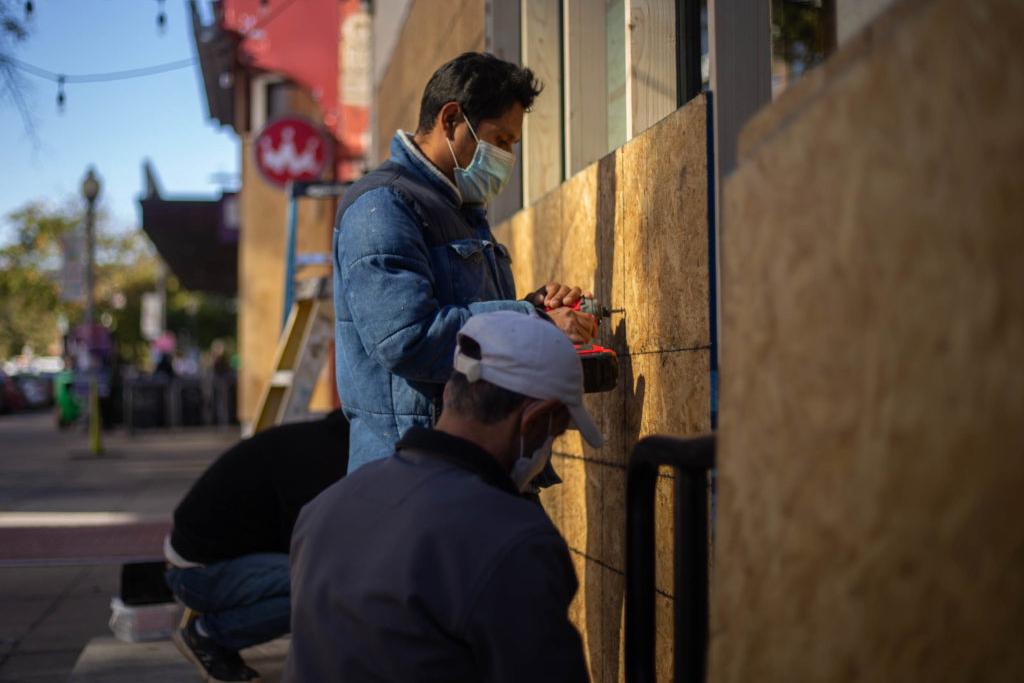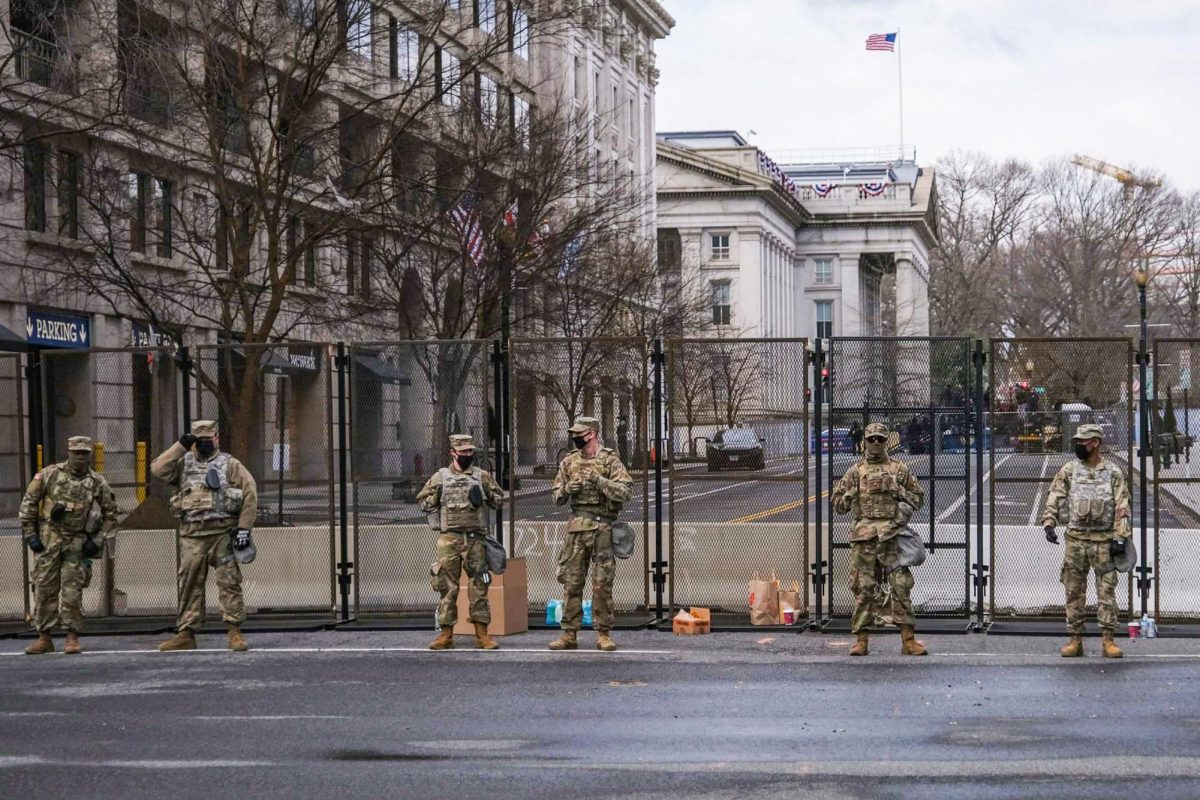Junior CJ Schor left campus for Colorado two weeks ago under heightened fear that far-right protesters could physically harm her and other members of the LGBTQ community while disputing the results of the presidential election.
Schor, who identifies as genderqueer and gay, said she saw several threats to the LGBTQ community from far-right groups on social media leading up to Election Day, portending violence if President Donald Trump lost his bid for reelection. She said safety concerns ahead of the election pushed her to book a flight home, where she plans to stay for the rest of the semester.
“I knew that it was going to be a lot of conservative people more outraged,” she said. “I don’t know. I guess I just anticipated that. And being a queer person myself, that concerned me a lot, and I think I feared for my safety.”
Students living on campus said uncertainty about the election, its results and potentially violent protests elevated fears leading up to Election Day in D.C. Although demonstrations near the White House remained peaceful before and after President-elect Joe Biden’s victory, students and officials said they rushed to prepare “for the worst” before the final results that many speculated could cause friction and disruption around campus.
“I guess I just didn’t anticipate the severity that they were expecting us to prepare for.”
Foggy Bottom businesses boarded up with plywood as protective armor, and students in the area received an email from officials urging them to prepare for the election by stockpiling groceries as they would for a natural disaster.
With Trump now refusing to concede the race, Schor said she fears his supporters could start pushing back against the results through protests. A woman and two men who identified as members of the Proud Boys, a far-right group who Trump instructed to “stand back and stand by” during a presidential debate in September, were stabbed near the White House during the first night of protests last week.
Sophomore Sabrina Izquierdo, who lives in District House and participated in Election Day protests, said her parents offered to book her flight to her home in Florida after the family received GW’s warning message. She said she loaded up on groceries last week, and her friend bought four cases of toilet paper.
But after spending hours at Black Lives Matter Plaza on Election Day, Izquierdo said demonstrations remained peaceful and didn’t “reflect” the University’s warning that she said discouraged participation in protests.
“It made everyone a lot more worried and a lot more fearful,” Izquierdo said. “When this is something important going on, it’s your decision whether to go out and protest and be in the streets, but I feel like GW just made everyone more scared and turned off everyone from the idea of even participating.”
Izquierdo said she and a few other students joined public gatherings in front of the White House Tuesday from 2 to 4:30 p.m. and again from 8 p.m. to about 2 a.m. – demonstrations she said brought no violence. She said she and her friends brought signs reading “Vote Trump/Pence OUT NOW!” and joined groups of people playing music and dancing in the plaza.
“Out on the street, in general, I felt really safe,” she said. “It was just everyone was so much more interested in just cultivating this kind of unity and this homey energy.”
Izquierdo said the protests did come with some tension, like when a man approached her and urged her to “care for all lives” instead of being pro-abortion-rights. Izquierdo and her friends handed out free masks to other demonstrators near the White House, but many supporters of Trump either refused to accept them or threw them on the ground, she said.
Other than select encounters, Izquierdo said behavior during demonstrations remained “relaxed,” and she noted that nearby police officers remained stationed near their cars and barricades by the White House.
Local and national law enforcement faced backlash for their show of force during racial justice protests this summer when National Guardsmen shot rubber bullets at peaceful protesters in Lafayette Square and ordered helicopters to swoop low above city streets. The D.C. Council passed police reform legislation in June, banning the use of tear gas and “other militarized gear” while controlling crowds.
GW Police Department Chief James Tate said he increased police patrols around residence halls last week, offering students safety tips and “real-time info” on local protests. Tate declined to quantify last week’s police presence on campus “for operational security reasons” but said the department occasionally adjusts to increase staffing by 15 to 20 percent.
He said GWPD maintained communication with the Metropolitan Police Department during the election while monitoring public activity in D.C. and close to campus.
“We’ll do everything we can to keep our community safe by communicating quickly/effectively as the situation develops,” Tate said in an email. “We will work to provide real-time information to our community on where violence is occurring. We will also protect, to best of our ability, all residence halls and safe havens on campus.”
Sophomore Emily Mosley, who lives in District House, said she’s seen up to four police officers at every building entrance during the past week, which she said helped improve her sense of safety during a “nerve-wracking” period of time when students and businesses were bracing for the results of the election.
“It was just really scary,” Mosley said. “I felt like I just kind of woke up one morning and everything was boarded up and they were telling us to prepare, and not that I didn’t expect people to protest, but I guess I just didn’t anticipate the severity that they were expecting us to prepare for.”
After students rushed to the White House to celebrate Biden’s victory, Mosley said she thinks Trump’s supporters and far-right groups might still trek to D.C. to “lash back” if Trump continues to oppose the results through lawsuits and verbal dissent – a concern echoed by extremism experts.
“I think it’s going to get more violent as time progresses,” she said.








